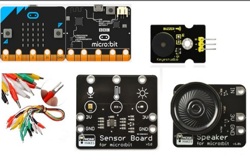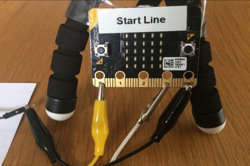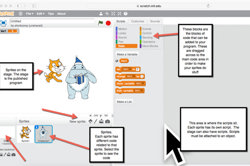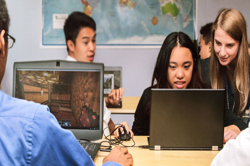Habits of a Systems Thinker
This lesson introduces some of the skills and concepts involved with Systems Thinking. Students are introduced to a number of Habits of a System Thinker, positive and negative feedback loops and the concept of supra- and subsystems.
Additional details
| Year band(s) | 7-8, 9-10 |
|---|---|
| Content type | Lesson ideas |
| Format | Web page |
| Core and overarching concepts | Systems thinking, Impact and interactions |
| Australian Curriculum Digital Technologies code(s) |
AC9TDI8P10
Evaluate existing and student solutions against the design criteria, user stories and possible future impact
AC9TDI8P07
Design the user experience of a digital system
AC9TDI8P08
Generate, modify, communicate and evaluate alternative designs
AC9TDI10P10
Evaluate existing and student solutions against the design criteria, user stories, possible future impact and opportunities for enterprise
AC9TDI10P07
Design and prototype the user experience of a digital system
AC9TDI10P08
Generate, modify, communicate and critically evaluate alternative designs |
| Technologies & Programming Languages | Artificial Intelligence |
| Keywords | Artificial Intelligence, AI, artificial, intelligence, teachable machine, algorithms, problem solving, Lesson idea, Lesson plan, Karsten Schulz, Digital Technologies Institute |
| Integrated, cross-curriculum, special needs | Digital Literacy |
| Organisation | ESA |
| Copyright | Creative Commons Attribution 4.0, unless otherwise indicated. |
Related resources
-

Classroom ideas: Micro:bit Environmental Measurement (visual and general-purpose programming) (Years 5-8)
Investigating environmental data with Micro:bits: This tutorial shows the coding needed for digital solutions of some environmental issues that can be created using pseudocode and visual programming.
-

Creating a digital start line and finish line with micro:bits (Years 7-8)
The following activity suggests one-way Digital Technologies could be integrated into a unit where vehicles are being designed and produced.
-

Developing user stories
These teacher slides can be used to introduce and develop understandings about user stories and how to write a user story based on a users needs and goals. In this set of slides we use several examples to illustrate the format of a user story.
-

AI ethics - What's possible, probable and preferred?
The development and ubiquity of Artificial Intelligence raise a number of social and ethical matters that students can explore in the Digital Technologies classroom.
-

Level Up: Game design
This unit of work is intended to teach years 9–10 students basic programming, using general purpose programming language.
-

Game design
This sequence of lessons integrates game design using scratch and a Makey Makey programming board.
-

Minecraft Lesson Plans
Find Minecraft lessons spanning primary and secondary school for use with your students.
-

Artificial intelligence…but where is the intelligence?
Use these activity ideas to explore issues related to AI including what is artificial intelligence, learning from mistakes, and how the brain actually works.
